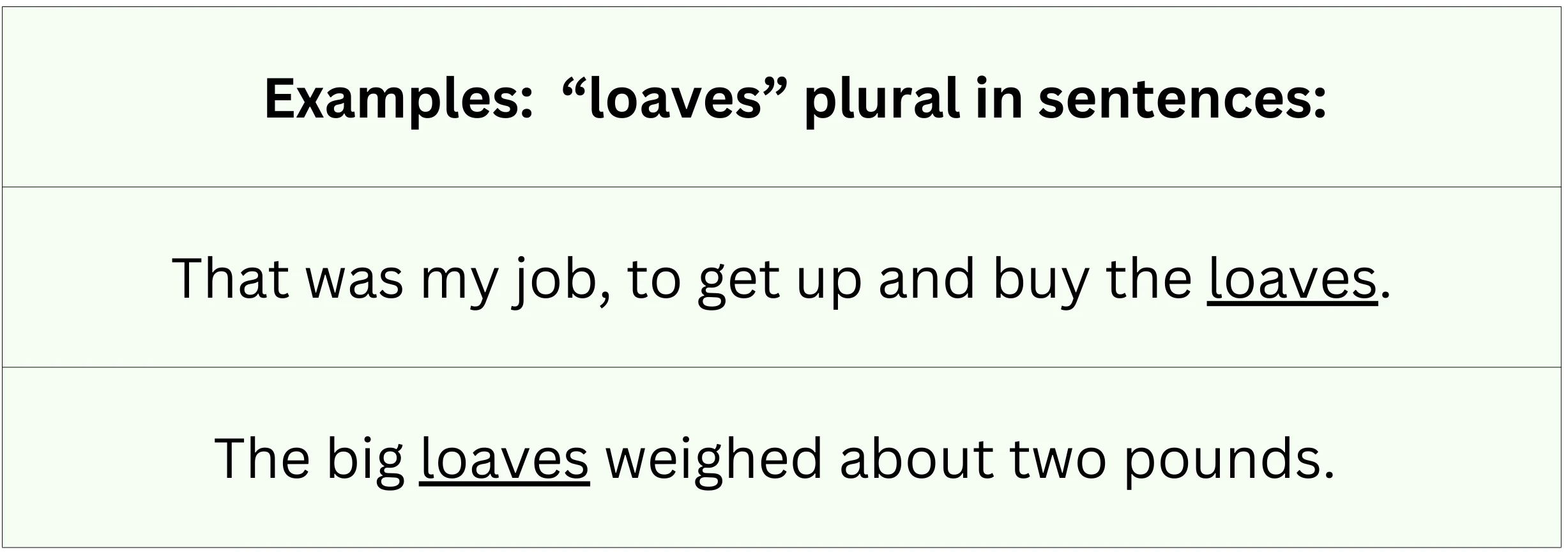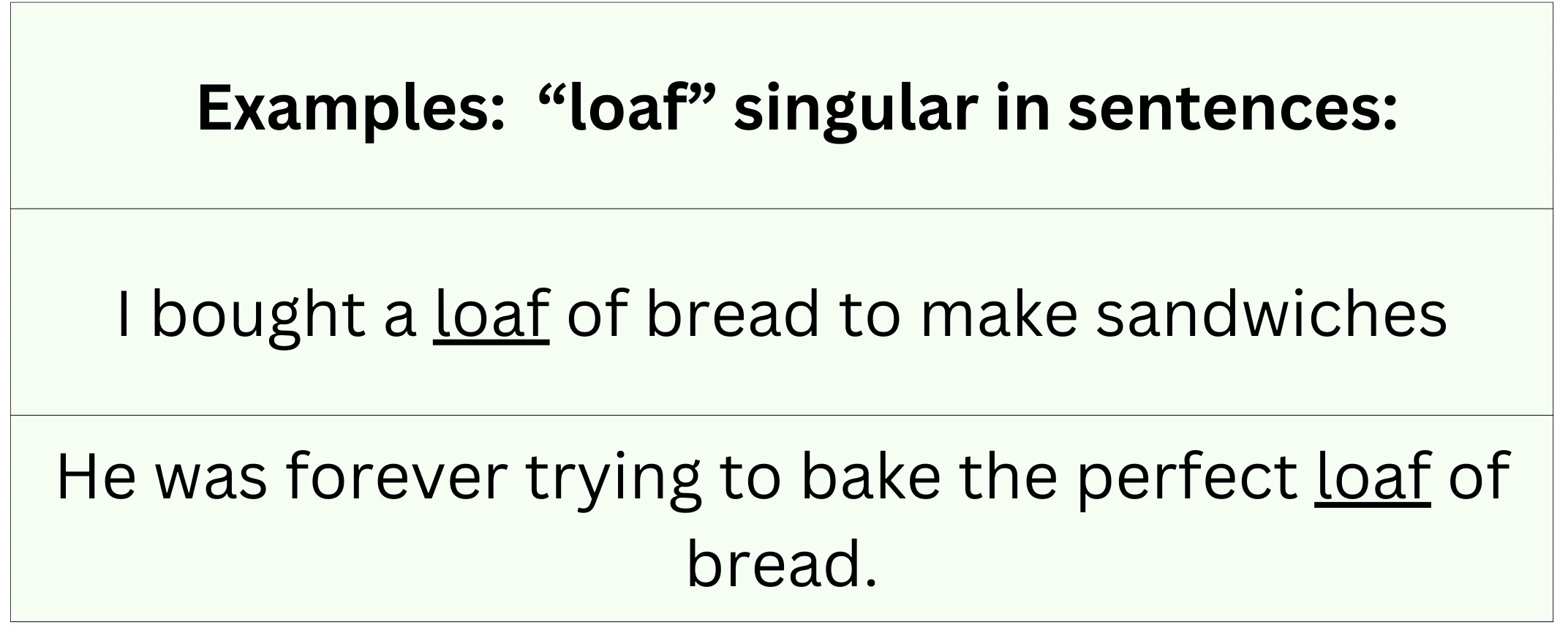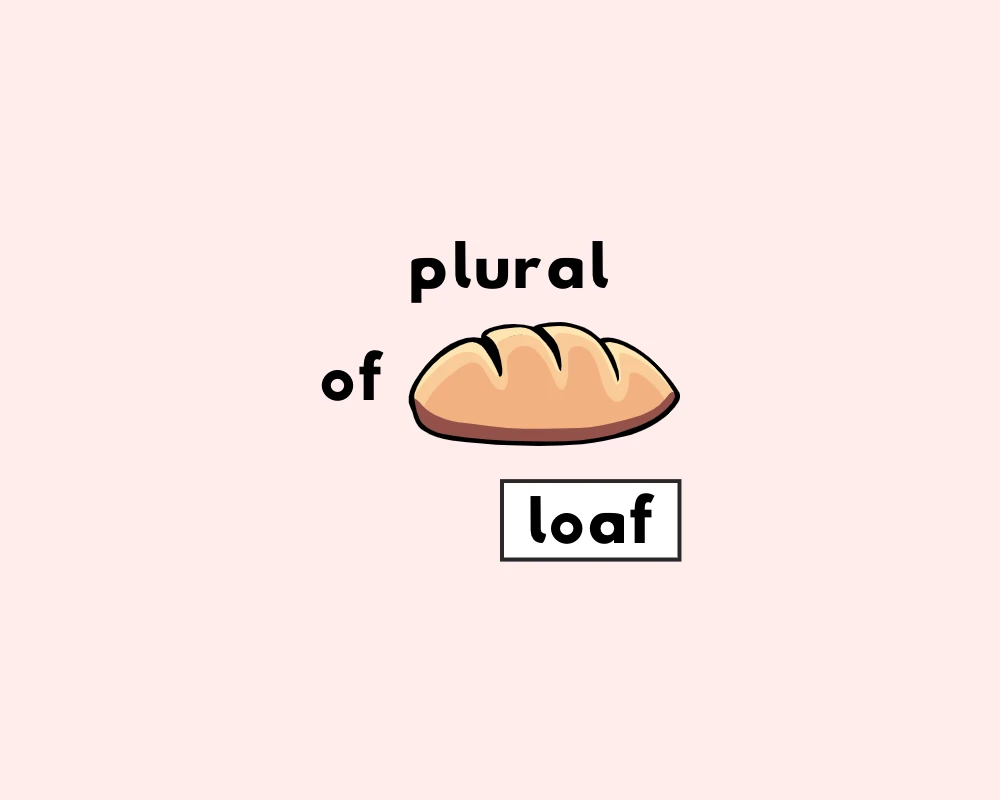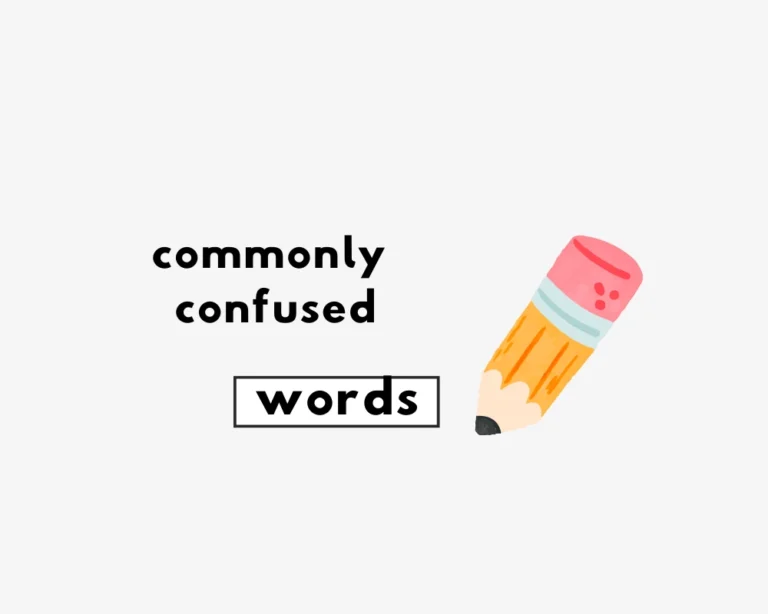What’s the plural of “loaf”?

For today’s lesson on irregular plurals, we’re taking on the loaf. The simple, sweet answer (much like the subject matter itself) is that the plural of loaf is loaves.
For the linguistically curious and attentive folk, it’s clear right off the bat how inconsistent loaves is with the other English plural nouns (even within its ostensibly irregular category.) So, without further delay—the loaf—in all its baked-goodness and delicious glory.
What’s the singular of loaf?

Loaf is the singular noun form. The only plural of loaf is loaves.
What’s a loaf? Are loaves the same as bread?
The dictionary defines a loaf as “bread that is shaped and baked in a single piece and can be sliced for eating: Get a loaf of white bread from the corner store.” Loaves (plural n.) refer to the shape and entire mass of the bread, pre-slicing.
Other irregular plural nouns (f-/-fe suffixes)
Loaf is irregular, (any plural noun in English that doesn’t end in -s or -es is considered irregular,) it belongs to a category of nouns that are similarly irregular. See the following chart of irregular plural nouns ending in -f/-fe, and convert to -ves as a plural:
| singular | plural |
| loaf | loaves |
| life | lives |
| wife | wives |
| shelf | shelves |
| self | selves |
| half | halves |
| wolf | wolves |
Aside from being irregular plural noun forms, these words all share a common history, and have PIE (Proto-Indo-European) origin. In other words, these words have Germanic roots and origins, they derive from a region where there were (and are) more than one possible ending given to plurals to indicate that they are, in fact, a plural.
The I-mutation is a case in point of another German plural form, which involves the fronting of a root vowel in anticipation of a ‘y’ or ‘I’ sound. See the following irregular plural noun forms which showcase the effects of the I-mutation (of Germanic tradition and origin).

Practice using the verb in different tenses with example sentences to memorize the correct forms.
Loaf (singular ) in sentences
The sentences show the correct use of the singular noun, loaf:
2. Time was when you could buy a loaf of bread for sixpence.
5. I bake a loaf of bread each day.
Loaves (plural) in sentences
The following sentences show the correct use of the plural noun, loaves:
1. The boys went through two whole loaves of bread.
2. Loaves of bread were rising along one counter beneath thin cloths.
5. I bake two or three loaves of bread every week.
Synonyms for loaf
- roll
- bun
- dough
- bread
Origin of the word loaf
From etymology online on loaf (n.):
From Proto-Germanic khlaibuz, the common Germanic word for “bread” (source also of Old Norse hleifr, Swedish lev, Old Frisian hlef, Old High German hleib, German Laib, Gothic hlaifs “bread, loaf”).
What’s the difference between they’re, their, and there?
Worksheet
What is the plural of ‘year’?
What is the plural of ‘year’?
What is the plural of ‘ha’?
Which is grammatically correct?
What makes a sentence grammatically correct?
Question 6: What is the main focus of this grammar content?
Question 7: Which is most important for proper grammar?
Question 8: Grammar rules help with:
Question 9: What is the main focus of this grammar content?
Question 10: Which is most important for proper grammar?
Which aspect is most important when learning grammar?
How can you improve your grammar skills?











